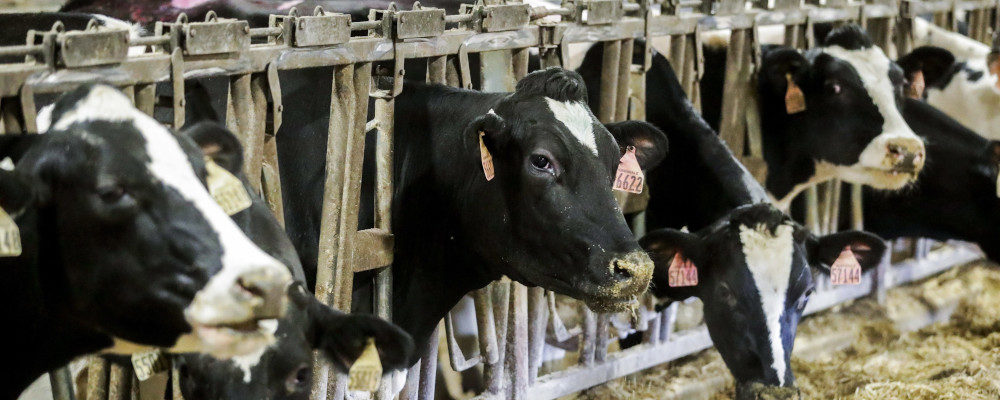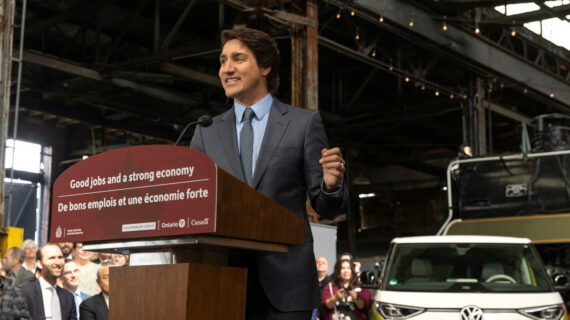I grew up in a meat and potatoes household in rural northern Ontario.
I am a lifelong conservative, and I have spent my entire professional career trying to elect conservatives across Canada.
I am also a vegan.
My conservative friends are often confused about this, almost as much as my vegan friends. But there is a strong case to be made for animal welfare as a part of the conservative creed.
MORE SIGNAL. LESS NOISE. THE HUB NEWSLETTER.
The U.K. Conservatives won a massive majority victory in 2019 and their election manifesto included a number of promises that would be absolutely shocking to Canadian politicians.
Their “animal welfare manifesto” included, among other things:
- A ban on the live exports of animals for fattening or for slaughter.
- New laws recognizing animal sentience.
- A crack down on puppy mills and illegal dog/puppy smuggling.
- The toughest anti-trophy hunting laws in the world.
- Mandatory cat microchipping.
Not only did they campaign on animal welfare, they outflanked their progressive opponents. Since the election, they have established an animal rights caucus and a Conservative Animal Welfare Foundation.
Though it was not the defining issue of the campaign, it undoubtedly helped their cause. Conservatives in the U.K., much like Canada’s Conservatives, struggle with younger, female, suburban and urban voters. The compassionate campaign for animal welfare opened a lot of eyes, and encouraged voters to take a look at their policies when they otherwise might not have.
If Conservative leader Erin O’Toole wants to win the next election, he needs to find a way to reach suburban voters — so why not start with animal welfare?
In addition to the proposals made by the U.K. Conservatives, here is how we live our conservative values and reduce the harm we cause to animals in Canada.
Personal Freedom
When it comes to personal freedom, I believe the Conservatives should stand for more, not less. That is why I am not going to argue that we should ban meat, impose a tax on meat, or otherwise restrict personal choices when it comes to food. In fact, I would suggest the opposite.
People should be free to eat what they want, and they should be able to make their own decisions about the health, environmental, moral, and economic impacts of meat.
But rather than letting consumers make their own choices, the government keeps putting its thumb on the scale to promote meat and dairy. According to one estimate using OECD numbers, meat and dairy farmers receive 89 percent of all agricultural subsidies in Canada — and that’s before we even consider the socialist price fixing scheme we call “supply management.”
On average, Canada spends about $3.4 billion in corporate welfare to the meat and dairy sectors every single year.
Despite these subsidies, more and more Canadians are deciding to eat less meat and dairy. Innovation is making alternatives like Beyond Meat more affordable and tastier, which is what most people base their food choices on. And people are becoming more educated about the health and environmental impacts of meat and dairy, which is driving them to try to make better choices for themselves and for their planet.
So my plea to conservatives is this: why not let the market decide?
Canadians can decide what they want to eat. And farmers can sell their products without billions in subsidies and we will see who is willing to pay the true cost of meat.
Corporate Welfare
One of the biggest promises made by O’Toole in the Conservative leadership race was a pledge to end corporate welfare.
If he meant what he said, a great place to start would be the billions handed out to the huge mega-corporations that dominate the animal agriculture industry.
The family farm only really exists in advertising these days. For example, three meat-packing plants process 85 percent of Canada’s beef.
Supply management claims to protect the family farm, and yet the number of dairy farms in Canada has shrunk from over 140,000 when supply management was introduced, to roughly 10,000 today. According to a report from Maclean’s, as of 2016, the average dairy producer had a net worth of $5 million, and the average producer was making $160,000 per year after expenses.
Conservatives should get serious and stop taking orders from powerful lobbyists. End the corporate bailouts and let these industries stand on their merits.
O’Toole has even shown some inclination to do this on environmental policy. During the leadership race, his platform temporarily included a pledge to end fossil fuel subsidies before the predictable outrage caused him to change his mind.
Ending corporate welfare for big emitters — including the animal agriculture industry — could be the centrepiece of a winning environmental plan for the Conservatives.
Time for Change
It is hard to claim you support small government and free markets and simultaneously support a socialist price-fixing scheme introduced by Pierre Trudeau.
It is equally hard to declare your support for ending corporate welfare while screaming from the mountaintops about how farmers do not get big enough bailouts from the Liberals.
As O’Toole said in his Conservative convention keynote, it is time for Conservatives to be bold and change with the times.
So my plea to the Conservatives on animal welfare is simple: embrace your core values. Support personal freedom in food choice. Support free markets and an end to corporate welfare.
And support the dignity of life — including for animals, who deserve far better than the inhumane treatment suffered in factory farms.




